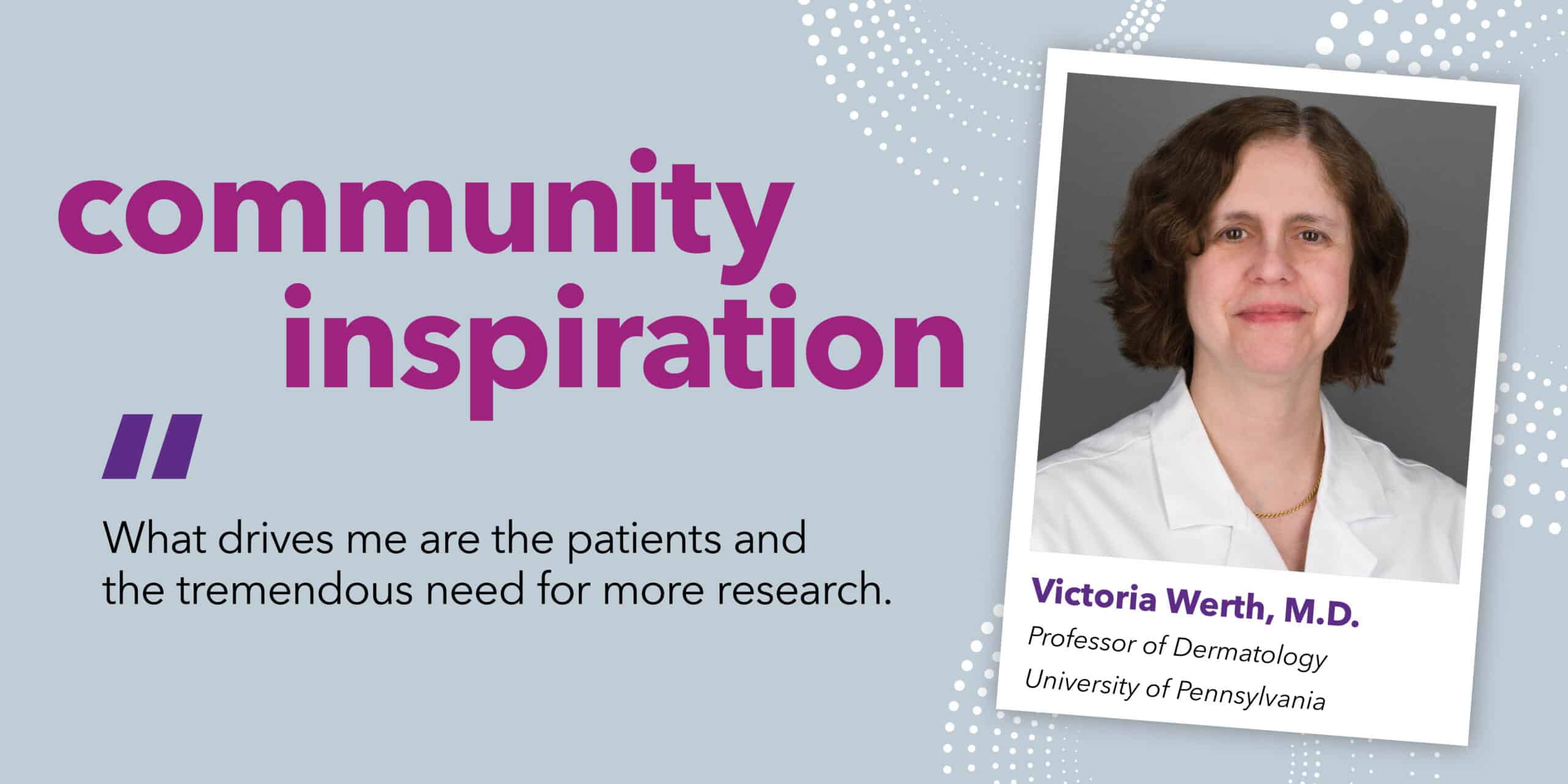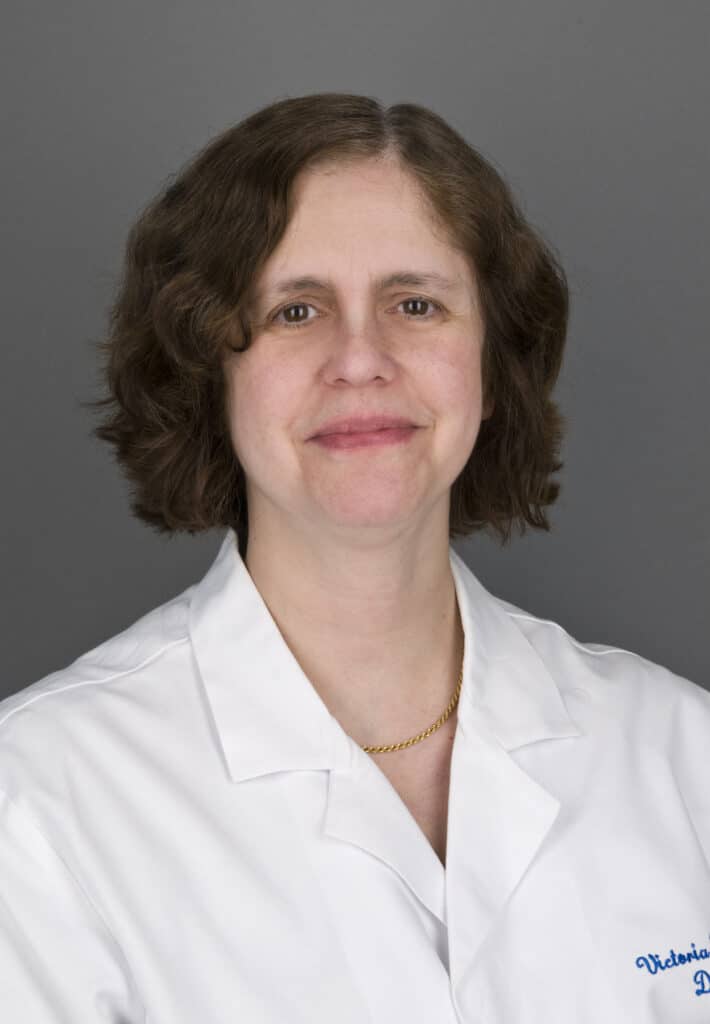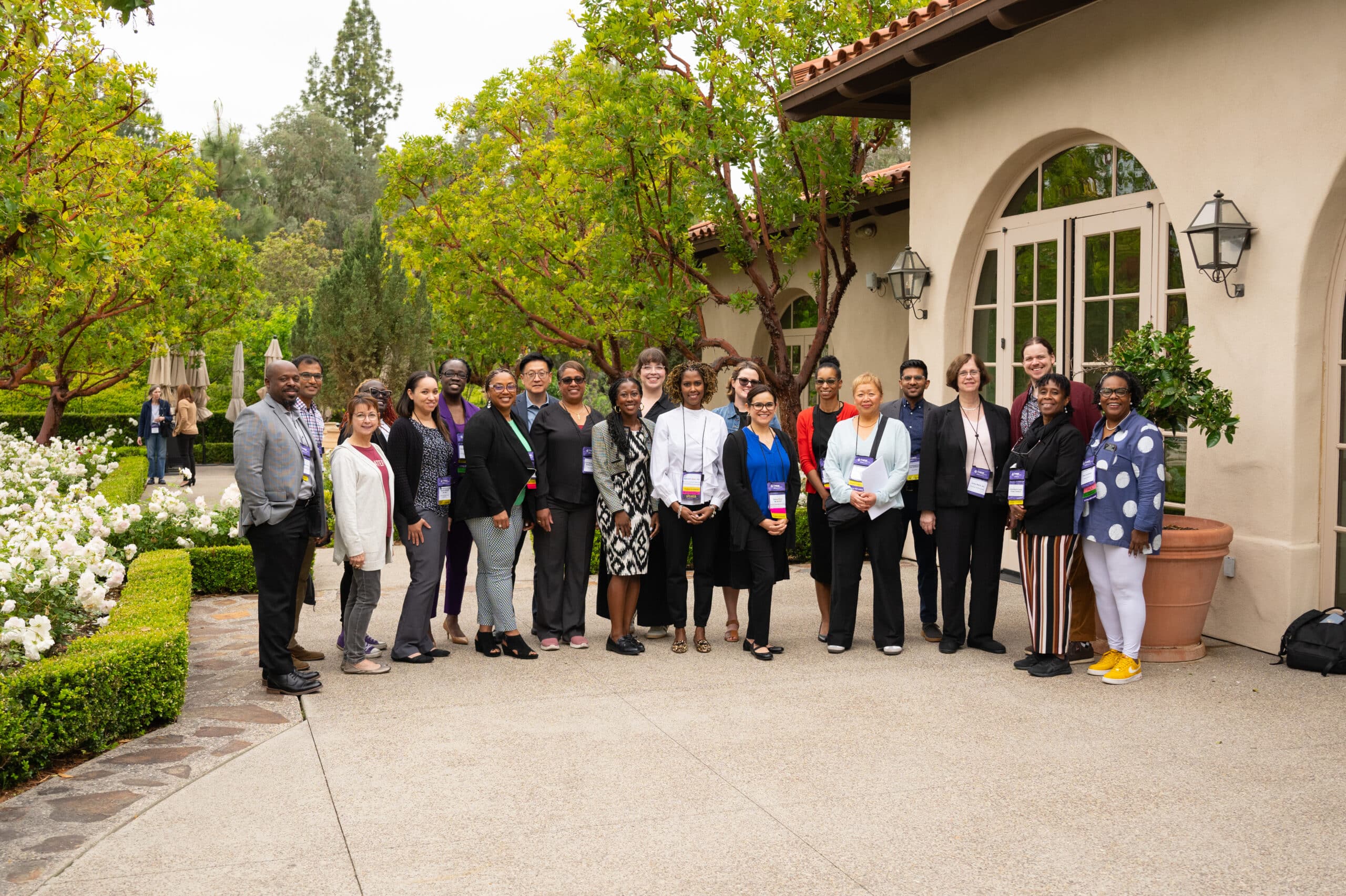Inspired by Patient Need, Dermatologist Specializes in Cutaneous Lupus

Inspired by Patient Need, Dermatologist Specializes in Cutaneous Lupus

July 11, 2024 —
Dr. Victoria Werth decided to focus her career on researching and treating cutaneous (skin) lupus erythematosus because she saw a major need that she could help fill. Her story is especially appropriate this July during Ultraviolet Safety Month – as ultraviolet sun rays can trigger flares for people with cutaneous and/or systemic lupus.
When Dr. Werth was starting out as a dermatologist and internist, many of her colleagues were pursuing what was then an exploding field of cosmetic surgery. She went in the opposite direction, fascinated by the complexity of treating skin disorders that overlap with medical issues and the pressing needs of people with lupus.
Dr. Werth established a combined internal medicine and dermatology residency training program that has programs at six medical centers. She has trained nearly 100 predoctoral and postdoctoral fellows, many of whom are now physicians around the world, treating and researching complex skin issues, particularly those caused by autoimmune diseases like lupus. She also helped form the Rheumatologic Dermatology Society which focuses on both care and scientific exploration of skin-related problems related to rheumatologic diseases like lupus and other autoimmune disorders.
Dr. Werth, affiliated with the University of Pennsylvania School of Medicine, is also part of the Lupus Clinical Investigators Network (LuCIN) overseen by Lupus Therapeutics, the clinical research affiliate of the Lupus Research Alliance.
Better Evaluating Effectiveness of Potential New Treatments
“The first time I went to the American College of Rheumatology meeting, I saw how much work needed to happen in cutaneous lupus. I wanted to focus on understanding what was causing it – why ultraviolet rays are so dangerous for people with lupus – and how to best treat them. What has always inspired me most are the pressing patients’ needs and my desire to help.”
As she began conducting clinical trials, Dr. Werth found a lack of effective tools to measure the potential effectiveness of a possible treatment, particularly for cutaneous lupus. Ever-ready to tackle a challenge, she began developing a tool to address the problem –now called the Cutaneous Lupus Disease Area and Severity Index nicknamed CLASI.

Further developing CLASI is one of four important projects advanced by the Lupus Accelerating Breakthroughs Consortium (Lupus ABC), a first-of-its kind public-private partnership uniting individuals with lupus and their advocates, industry, clinicians, researchers, and government representatives to identify and pursue the most effective ways to accelerate the development of urgently needed personalized treatments for people with lupus. The Working Group, of which Dr. Werth is a member, is dedicated to addressing questions the U.S. Food and Drug Administration (FDA) has about CLASI for use as an outcome measure in clinical trials testing potential treatments for cutaneous lupus.
Improving Access to Clinical Trials and Care
When Dr. Werth sees an obstacle for patients, she is determined to overcome it. That’s why she also joined Project CHANGE created by LRA’s clinical research affiliate Lupus Therapeutics to help ensure that the full range of diversity of people with lupus is reflected in clinical trials so any new treatments are developed, tested, and ultimately used by the communities who need them most.
“Very often the population in clinical trials is quite different than the population who have severe lupus and do not have the same access to the specialized care that lupus demands. The program is called Project CHANGE because it’s trying to change things that limit quality of care.”
Dr. Werth is leading Project CHANGE at the University of Pennsylvania, one of three pilot locations including Emory University in Atlanta and Vanderbilt University in Nashville. She noted that each site is developing individualized ways to address common issues that make the most sense in their communities.
Detailing some of the most pressing hurdles, Dr. Werth pointed to insufficiencies in resources such as community-based rheumatology and dermatology specialists, access to clinical trials being conducted, funds to subsidize hospital care during trials, and social worker navigators for patients who are not well equipped to navigate a complex health system. She noted that for some people, giving more tender-loving care can be profoundly helpful.
“Project CHANGE stands out because it is trying to address many issues limiting clinical research on multiple levels, involving people in multiple ways to come up with creative solutions. I think it will require a different answer for every city and every institution. And we’re making good progress.”
10 Sun Exposure Tips from Top Dermatologist and Autoimmune Disease Specialist
- Cover up with SPF-rated clothing
- Wear sunscreen with 70+ SPF rating, even under clothes; choose one with zinc oxide or titanium dioxide to block sun
- Apply sunscreen even on cool or cloudy days and when driving
- Use sunscreen on your face daily
- Reapply sunscreen every 2 hours
- Sit under an umbrella. But know that you still need protection—60% of the sun’s rays reflect off sand and water
- Enjoy the outdoors early morning and late afternoon when the sun is not as strong
- Wear a hat
- Lessen your predisposition to more skin lesions by not smoking
- Take your treatments as prescribed to lessen lupus severity



